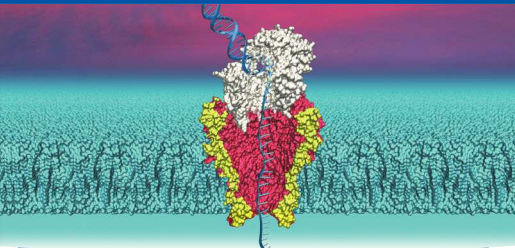The Effect of Mammalian Target Of Rapamycin (mTOR) and AMP-activated protein kinase (AMPK) on Aging

The Effect of Mammalian Target Of Rapamycin (mTOR) and AMP-activated protein kinase (AMPK) on Aging
The Mammalian Target Of Rapamycin (mTOR) is an important cellular nutrient sensor that is sensitive to dietary proteins and amino acids.
When you eat protein, it gets broken down into its component amino acids for absorption by the intestines, and mTOR increases.
Eating sufficient protein to obtain the necessary amino acids is important for overall health, but avoiding excessive mTOR is also important for life span extension.
Dietary protein restriction and fasting can decrease mTOR.
mTOR is a nutrient sensor whose activation is inextricably linked to growth pathways.
When you detect protein availability, your body goes into growth mode and begins producing new proteins.
This is an example of antagonistic pleiotropy.
In early life, mTOR promotes growth and development, but this mechanism harms us in later life by causing aging.
Some of the benefits of protein restriction may be related to mTOR’s effect on autophagy.
Autophagy is a cellular recycling process by which old proteins and subcellular organelles are broken down.
This process provides energy and the amino acids necessary to rebuild new proteins to replace the old proteins, a key factor in cell maintenance.
Autophagy is the critical first step for maintaining a cell in pristine condition, and aging is characterized by a decline in the rate of autophagy as damaged molecules accumulate in the cell and impede its function.
In rats, there is as much as a six-fold difference between young and old animals.
Declining autophagy rates mean damaged cell components like lipid membranes and mitochondria hang around longer.
The most potent stimulus for turning off autophagy is mTOR.
Even a little bit of dietary protein raises mTOR, turning off autophagy and the cellular renewal process.
Fasting greatly increases the rate of autophagy and, in yeast, is essential to the life span–extending effects of calorie restriction.
Drugs that block mTOR, such as rapamycin, can extend the life span in yeast, largely through its effect on autophagy.
AMP-activated protein kinase (AMPK).
It acts as a sort of reverse fuel gauge of cellular energy stores.
In your car, if you have lots of energy in the form of gasoline, the gauge reads high.
In your cells, if you have lots of energy in the form of ATP (adenosine triphosphate), then AMPK is low.
Low cellular energy levels raise AMPK levels.
Thus, AMPK acts as a sort of cellular fuel gauge but in reverse.
Like mTOR, AMPK is linked to growth pathways.
AMPK down-regulates the synthesis of biological molecules, including those needed for growth (anabolism).
Unlike insulin or mTOR, AMPK is not responsive to any specific dietary macronutrient but assesses the overall availability of cellular energy.
Substances that activate AMPK (mimicking low cellular energy stores) are known for promoting health.
Examples include;
- the diabetes drug metformin,
- resveratrol from grapes and red wine,
- epigallocatechin gallate (EGCG) from green tea and dark chocolate,
- capsaicin from peppers,
- curcumin from the spice turmeric, garlic,
- and the traditional medical herb berberine.
Calorie restriction also activates AMPK, and this fact may be important to AMPK’s effects on aging.
AMPK enhances glucose uptake into muscle cells and increases the generation of mitochondria, leading to an increased capacity for burning fat.
AMPK also increases autophagy, the important cellular self-cleansing process that rids cells of junk and recycles it.








